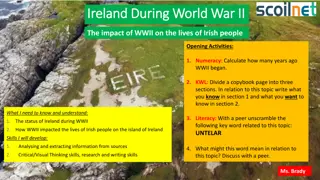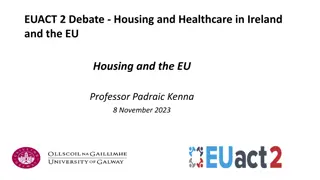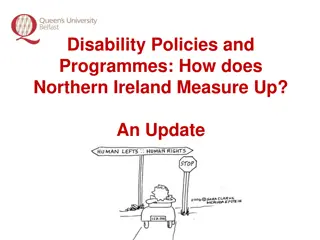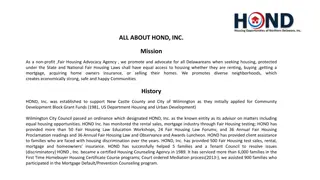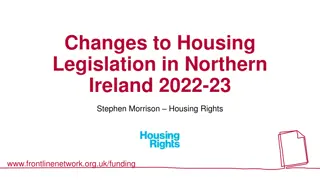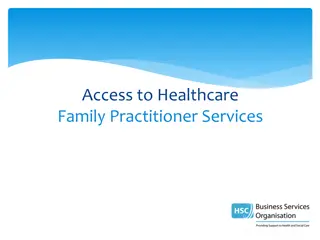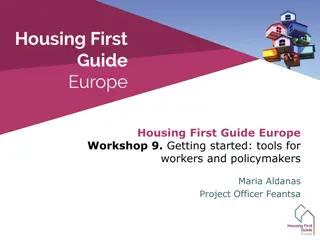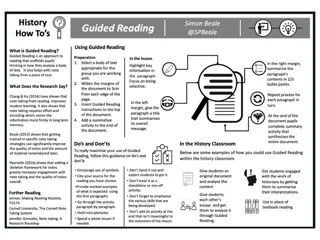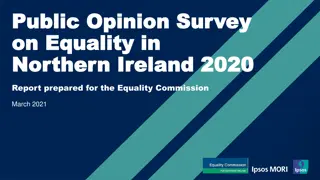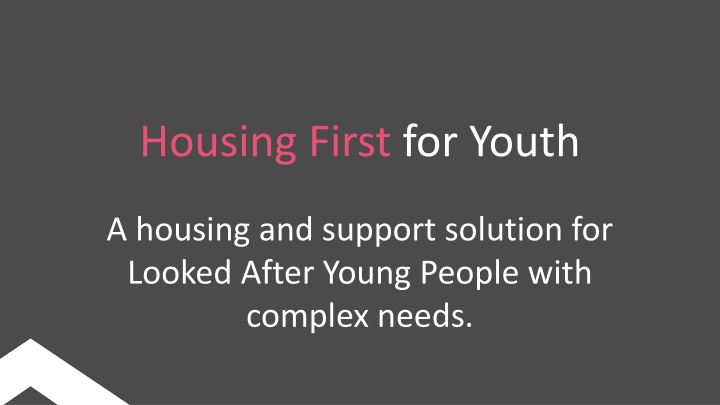
Supporting Looked After Young People with Complex Needs - Housing First for Youth Evaluation
"Explore the impact of Housing First for Youth, a housing and support solution for Looked After Young People with complex needs. Independent evaluation highlights positive experiences, improved mental health, and social skills among participants. Discover firsthand accounts and valuable insights for effective service delivery." (303 characters)
Download Presentation

Please find below an Image/Link to download the presentation.
The content on the website is provided AS IS for your information and personal use only. It may not be sold, licensed, or shared on other websites without obtaining consent from the author. If you encounter any issues during the download, it is possible that the publisher has removed the file from their server.
You are allowed to download the files provided on this website for personal or commercial use, subject to the condition that they are used lawfully. All files are the property of their respective owners.
The content on the website is provided AS IS for your information and personal use only. It may not be sold, licensed, or shared on other websites without obtaining consent from the author.
E N D
Presentation Transcript
Housing First for Youth A housing and support solution for Looked After Young People with complex needs.
Independent Evaluation 2018 2022; Dr Olinda Santin QUB 1. Calculating and describing the total number of service contacts via collated service data 2. Young people s experience and perspectives of Housing First for Youth (semi-structured interviews) 3. Housing First for Youth staffs experience of delivering the service (focus groups and semi-structed interviews) 4. Explore the impact of the service from the perspectives of social workers, personal advisors, team leaders and managers (online semi-structured interviews) 5. Explore the impact of the service and the factors affecting service delivery from the perspectives of partner stakeholders (Housing First for Youth Strategic Group- online survey).
Young Peoples Experience All had experienced multiple placements, issues with mental health, addiction, confidence, low mood, aggression (which led to assault) All young people felt supported, required 24 hrs support, reduced risk- feeling suicidal, under the influence (esp. at night) Described service as providing chances and forgives you , space to make mistakes and stickability enabled trust and learning Multiple tenancies lost but still supported and accommodation found
Young Peoples Experience Mental Health- HF4Y a lifeline and lifesaving Help to receive medical attention for suicide attempts and self-harm Preventative interventions based on knowing the young person (talk, distract, manage) Fewer admissions to hospital Improvements in negative emotions Improved confidence and self-esteem Improved life tasks Better management of anger or aggression, disappointments, and No Less abusive outbursts Reduction in drug/ alcohol use
Young Peoples Experience Improvements in social skills - education, employment, daily living skills, staying at night without staff Support with family relationships- navigating and maintaining contact with birth families Areas of improvement Building independence reliance on staff Building relationships with staff- high turnover, impact of shift work
What our Young People say about Housing First for Youth: I didn t have any friends, they were the only people I had. I like getting out, doing something, clearing my head. It s good to go out and socialise with people who aren t crazy and won t get you into trouble. They chill your brain a wee bit. They stop me killing myself.
Key Findings Key Considerations Effective model for young people with complex needs Access to suitable housing Intensive support vs independence Staff turnover Impact of shift work Future funding Positive impact: physical, psychological and social health Key to success planned and slow transition into service Acknowledged as a lifesaving model Value of HF4Y approach
Safeguarding and Response Unit Casework Unit Dedicated key worker Pro-active delivery of support to young people based upon their support plan Appointment/routine based, structured delivery of support sessions progressing ability to manage household, harm-reduction, educational or employment needs, and community integration Assessments Liaising with social work teams Incident reflection, learning and response 24/7 rota, with double-cover at all times peak-time cover allowing for greater resource at busier times (11am 3am) Pro-active welfare checking of young people as per standard safeguarding protocols of the service (particular focus on under-18s) On-call/ response to young people in crisis or distress Incident response
Benefits of research and reconfiguration Responsive to learning from evaluation Provides response Provides for relationship development and growth Model is flexible to respond to requirement for independence, but also providing safety net Safeguarding inputs do not reduce support intervention Better use of resources and values for money Staff role clarity and development opportunities Service could support more young people



